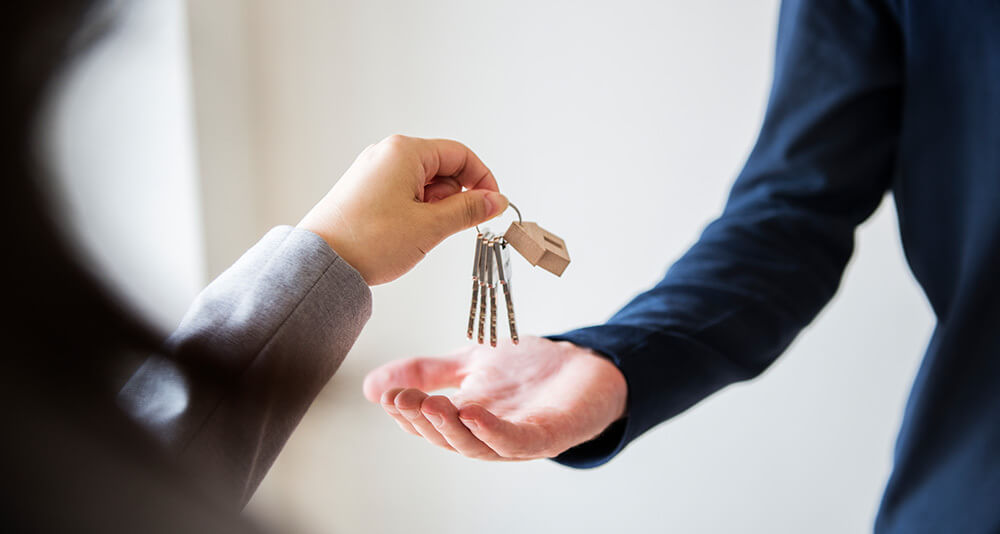Inheriting a House with No Mortgage

Your parents or other dear family member recently passed away and now you find yourself the owner of a family home. You may not be sure what your next step should be. The following information will help you think through your choices and obligations to allow you to make a good decision that honors your loved one and is right for you.
Taking the Property Through Probate
In most cases, you will have to go through a legal process called probate if you are inheriting a house with mortgage. Some states allow you to take ownership if you have a quick claim deed, which names you as the beneficiary or payable on death. However, you will generally need to go through probate before you can transfer the title in your name even though there is no mortgage on the property.
Since the property is owned outright by the deceased person with no mortgage, you may think it’s an easy process to become the owner. However, the house is considered an asset of the estate and must be treated as other assets until probate is completed.
If the deceased person owed debts and didn’t have enough other assets to pay those debts, the house may need to be sold to pay the creditors. If you find that this isn’t the case, you can focus on what you want to do with the property.
Sharing with Other Heirs
Another issue is whether you inherited the house alone or with your siblings or other heirs. If other people inherited the house with you, then they will have a say in what happens next. It’s best to find out what they want to do with the property as early in the process as possible to know what your options are.
If you want to keep the property and they want to sell, it may be a matter of buying them out. However, if they want to keep the house as well, you’ll have to figure out how it will work to share the house. If another heir wants to live in the house full-time, the decision will need to be made if they need to pay rent or how you will be compensated for a house you can’t enjoy.
Options for the House

Assuming you are the sole heir to the house, you have a few options on what to do with it once it becomes yours. You can decide to keep it and live in it, keep it and rent it out or sell it. Each option comes with some important considerations.
Keep the House
If you choose to keep the house, you’ll want to have it inspected carefully. You need to know of any hidden problems that may exist which could cost you money to fix. It’s a good idea to get an inspection done for structural, foundation, roof and plumbing and electrical issues. You may also want to have an appraisal to give you an idea of the value of the house. You can decide if the work that must go into the house will make it worth keeping it as your home.
Sell the House
Another option is to sell the house. Most of the proceeds would be profit with no mortgage to repay. However, you have another decision to make if you choose to sell the house. You’ll need to decide if you want to sell it as-is or fix it up and sell for a higher price.
If the home is badly outdated, you may have a difficult time finding an interested buyer. However, there are cash buyers who are usually investors who want to fix-and-flip. They will usually give you fair market value for the current condition of the house, which is money you will have in your pocket with no obligations.
The other option is to fix up the house before you sell. You will likely get a much higher selling price if you go this route. However, you also have a lot of work ahead with hiring and supervising contractors if you can’t do the work yourself. You also must know what updates to make that will maximize the profit without taking too much time or money.
It’s helpful to work with a real estate agent or someone who knows the market. They can give good advice for your area. However, the decision is ultimately yours and one you want to make carefully.
Rent the House
You do have a third option when you inherit a home. You can keep it and rent it out for added income. It can be nice to have regular income coming into your bank account that you have little work to get. Being a landlord often appeals because of the idea of getting paid each month for letting someone live in property you already own.
However, being a landlord does come with work. You have to maintain the property, which means you must charge enough to pay for those repairs. You must also find out if there are any zoning restrictions in the area where the property is located that prevent it from being used as a rental.
You should do a rent assessment for the area to determine how much you can charge. Don’t forget about the work involved in finding applicants who will be good tenants and pay on time while caring for the property. If you choose this option, make sure you do plenty of research to know what you’re getting into.
Another option which is similar to renting is operating an AirBnB. You can charge more for less use. Visitors may stay in the house for a week or on weekends, and they are usually willing to pay a premium for private accommodations. This only works if you live in an area that draws tourists or has a lot of visitors, such as a college town.
If you decide to use your inherited home as a rental, talk with someone who knows about this option. They can tell you about city and county laws and explain the challenges and responsibilities that come from being a landlord.
Taxes on an Inherited Home
As you might expect, you will be responsible for taxes on your inherited house. If you live in one of six states, you may have to pay an inheritance tax on the house. The tax is a percentage of the value of the house. There is usually an exempted amount, which allows you to not pay a tax as long as the value is under a certain dollar amount.
You may have to pay property taxes if the former owner wasn’t caught up. This amount will be owed as soon as you inherit the house, and you will continue to pay it as long as you own the property. Be prepared to pay a higher tax than what the previous owner did. Property is reassessed when it is bought or inherited. If it has been owned by the same person for many years, you might end up paying several hundreds or even thousands of dollars extra in property taxes with the reassessed value.
Capital Gains Taxes
The third tax to worry about is the tax you pay on the profit you make if you sell the property. To determine the amount of tax, the value of the property at the time it was inherited is subtracted from the sale price. You are allowed to include costs, such as repairs or commissions.
Once you have the total sale price, you deduct it from the value of the home when the person inherited the property. If the total is less than the value, it can be considered a tax loss. If it is more, it will be considered a profit, which you will need to pay taxes on.
If you use the property as a rental, the income from the home will be taxed as regular income rather than as a capital gain. However, any profit you make on the sale of the house may be subject to capital gains. It’s best to talk to a tax accountant who can tell you the latest laws in your state on capital gains and inherited properties.
As you can see, inheriting a house even if it has no mortgage isn’t always a simple situation. Variables come into play and will impact your decision on what to do with this property you now own. Make sure you talk to legal and financial advisors before deciding on what to do with the house. You want to make a solid decision for today and for your future, especially since real estate is often considered to be one of the best investments you can make.
Sources:
https://homeguides.sfgate.com/taxes-inherited-house-7918.html#:~:text=What%20Taxes%20Are%20on%20an%20Inherited%20House%3F%201,own%20the%20house.%203%20Capital%20Gains%20Taxes.%20
https://www.irs.gov/faqs/interest-dividends-other-types-of-income/gifts-inheritances/gifts-inheritances
https://www.zillow.com/sellers-guide/what-happens-when-inheriting-property/

